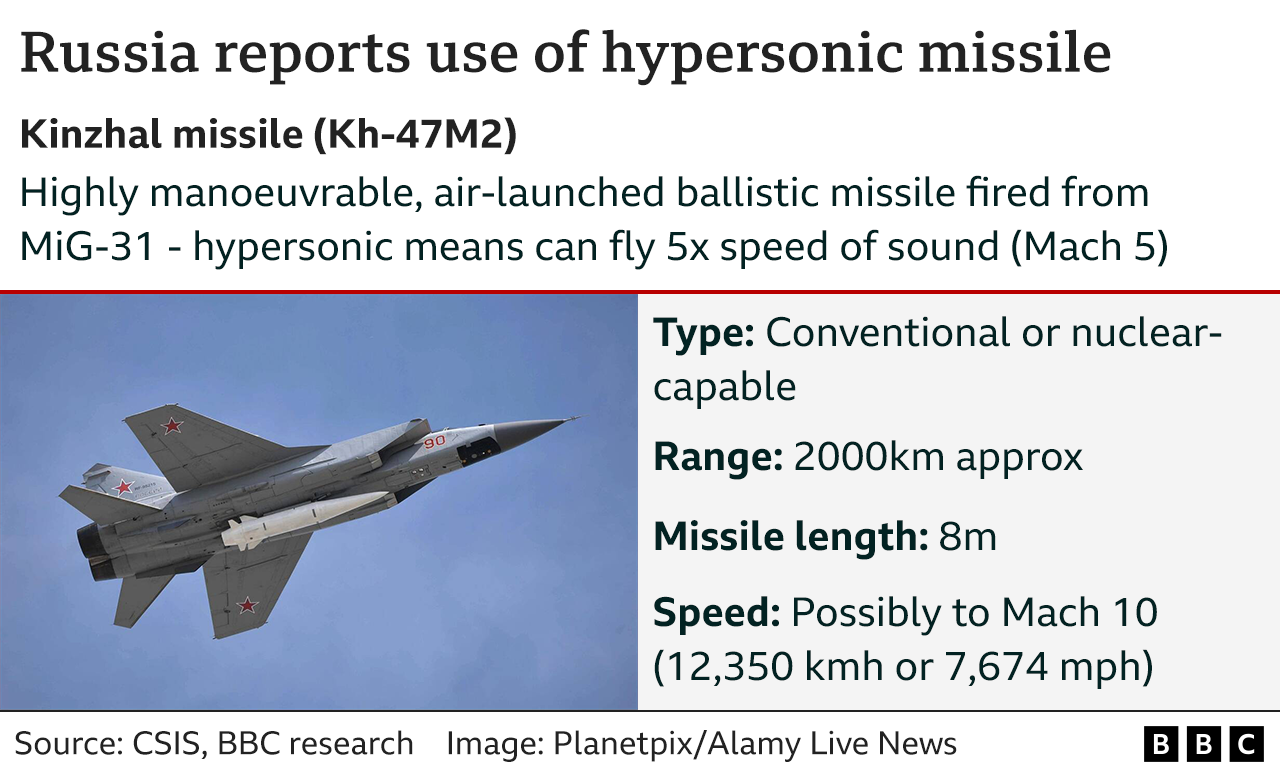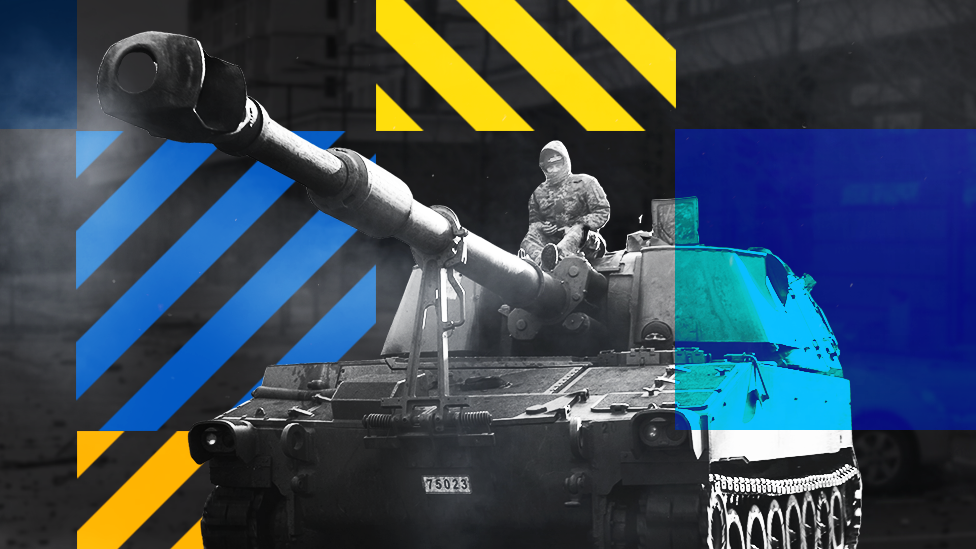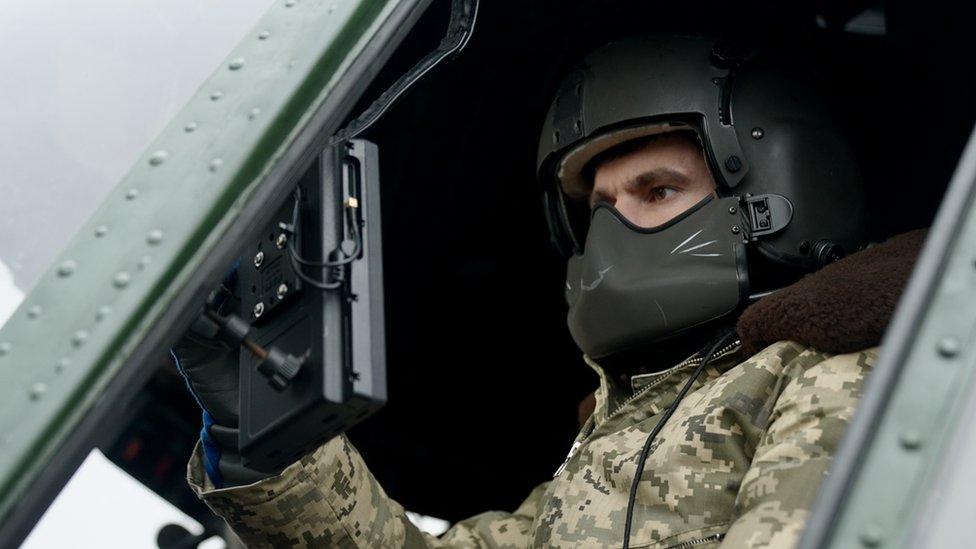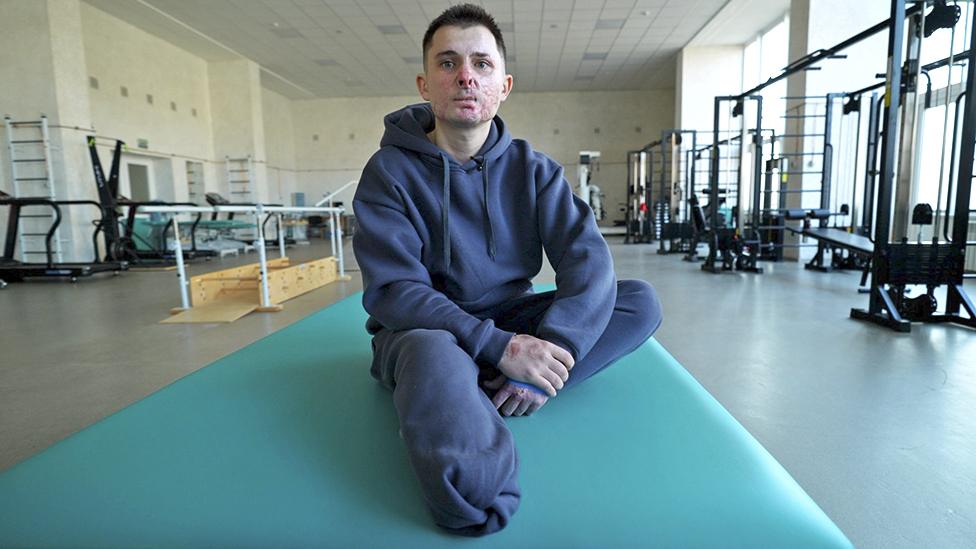Ukraine war: Russia fires hypersonic missiles in new barrage
- Published
Watch: Wave of Russian strikes leaves destruction across Ukraine
At least nine people have died in a new wave of strikes across Ukraine in which Russia used powerful weapons, including rare hypersonic missiles.
Russia had reportedly not fired Kinzhal hypersonic missiles - which can evade air defences - since the early months of the conflict.
The latest barrage was the most severe to hit Ukraine for weeks.
It cut power to the Zaporizhzhia nuclear plant - Europe's biggest - although it was later restored.
On Thursday Russian defence ministry spokesman Igor Konashenkov said: "High-precision long-range air, sea and land-based weapons, including the Kinzhal hypersonic missile system, hit key elements of Ukraine's military infrastructure."
It was the biggest day of Russian strikes on Ukraine since the end of January,
The Ukrainian military claimed it had successfully shot down 34 cruise missiles and four Iranian-made Shahed drones.
But it also said it had been unable to intercept the six Kinzhal ballistic missiles - nor was it able to destroy older weapons, such as Kh-22 anti-ship missiles and S-300 anti-aircraft missiles.
"This was a major attack and for the first time with so many different types of missiles," the Reuters news agency quoted a Ukrainian air force spokesperson as saying. "It was like never before."

President Vladimir Putin has highlighted Russia's investment in ballistic hypersonic missiles, which can travel at more than five times the speed of sound.
Nuclear energy operator Energoatom said the strike at the Zaporizhzhia plant had cut off the link between the facility and the Ukrainian power system.
For the sixth time since it was taken over by Russia a year ago, the facility operated on diesel generators until the link was restored later on Thursday.
Electricity is needed for cooling radioactive material present at the plant.
"Today's loss of all external power once again demonstrated how fragile and dangerous the situation is for the Zaporizhzhya Nuclear Power Plant," said Rafael Grossi, the head of the International Atomic Energy Agency (IAEA).
Earlier on Thursday he had called for an international commitment to protect the plant, following a series of strikes since the invasion began.
"Each time we are rolling a dice. And if we allow this to continue time after time then one day our luck will run out," Mr Grossi said.
In the capital Kyiv, emergency services attended the scenes of blasts in western and southern districts.
A missile also hit an energy facility in the port city of Odesa, triggering power cuts, its governor Maksym Marchenko said. Residential areas were also hit but no casualties were reported.
Elsewhere, Ukraine's military says it has pushed back intense Russian attacks on the embattled eastern city of Bakhmut despite Russian forces claiming to have taken control of its eastern half.
Moscow has been trying to take Bakhmut for months, as both sides suffer heavy losses in a grinding war of attrition.
"The enemy continued its attacks and has shown no sign of a let-up in storming the city of Bakhmut," the general staff of the Ukrainian armed forces said. "Our defenders repelled attacks on Bakhmut and on surrounding communities."
Between 20,000 and 30,000 Russian troops have been killed or wounded in the battle for the Ukrainian city of Bakhmut since it began last summer, Western officials say. The figures cannot be verified independently.
- Published24 February 2023

- Published27 February 2023

- Published7 March 2023
